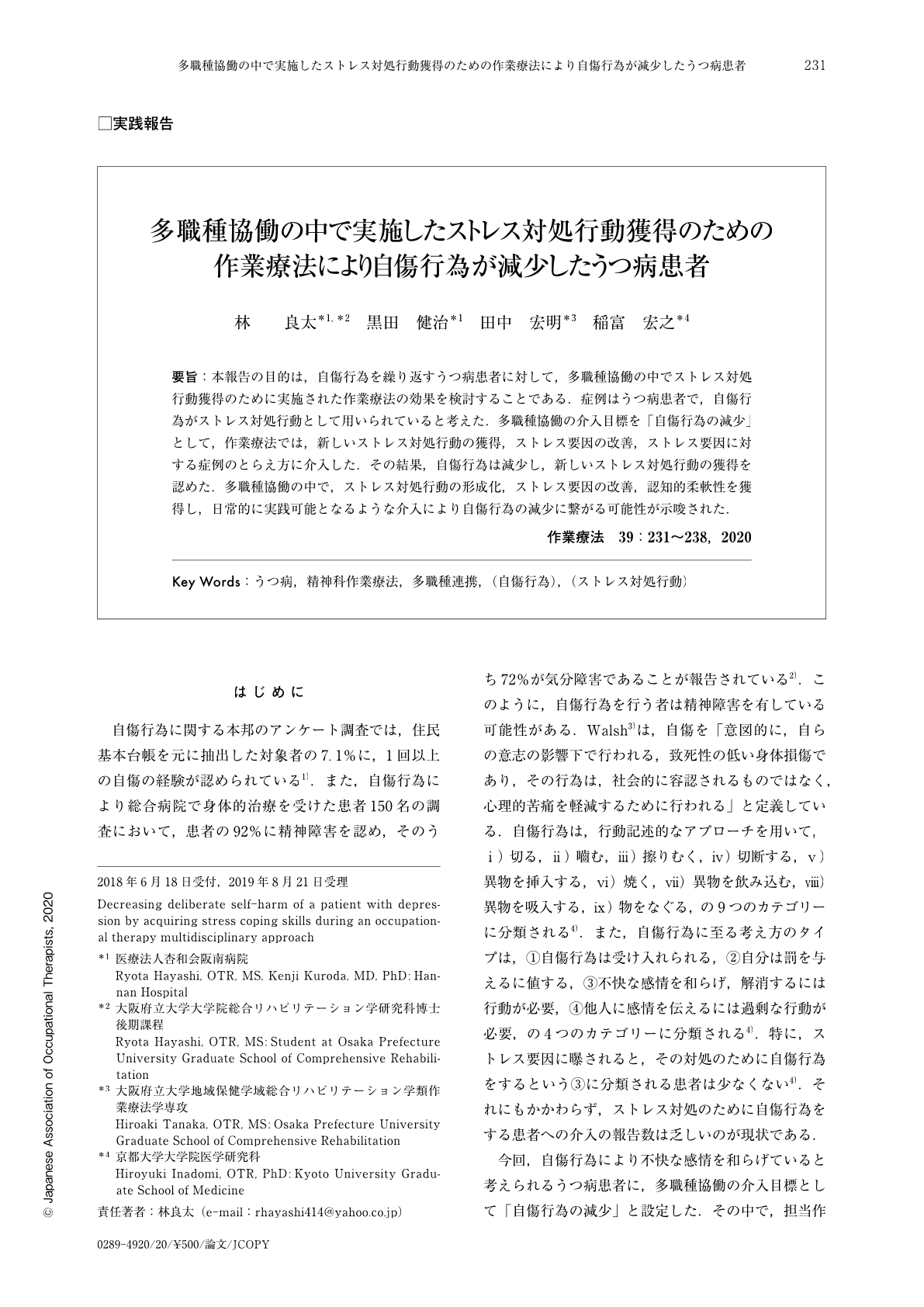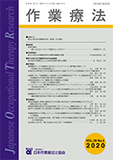Japanese
English
- 販売していません
- Abstract 文献概要
- 1ページ目 Look Inside
- 参考文献 Reference
- サイト内被引用 Cited by
要旨:本報告の目的は,自傷行為を繰り返すうつ病患者に対して,多職種協働の中でストレス対処行動獲得のために実施された作業療法の効果を検討することである.症例はうつ病患者で,自傷行為がストレス対処行動として用いられていると考えた.多職種協働の介入目標を「自傷行為の減少」として,作業療法では,新しいストレス対処行動の獲得,ストレス要因の改善,ストレス要因に対する症例のとらえ方に介入した.その結果,自傷行為は減少し,新しいストレス対処行動の獲得を認めた.多職種協働の中で,ストレス対処行動の形成化,ストレス要因の改善,認知的柔軟性を獲得し,日常的に実践可能となるような介入により自傷行為の減少に繋がる可能性が示唆された.
This case study investigates the treatment options, including gaining stress-coping skills through occupational therapy, for a patient with depression and repeating, deliberate self-harm. The patient used deliberate self-harm as a stress-coping skill, and the goal was to “decreasing deliberate self-harm”. Occupational intervention aimed to discover new coping skills and ways to lessen stressors. As a result, the number of wrist cutting instances decreased, and the patient has been able to apply new coping skills. A multidisciplinary approach to occupational therapy may lead to a generalized reduction in stressors resulting in an overall decrease in self-harm, a formation of new stress-coping skills, and acquisition of cognitive flexibility in everyday life.

Copyright © 2020, Japanese Association of Occupational Therapists. All rights reserved.


